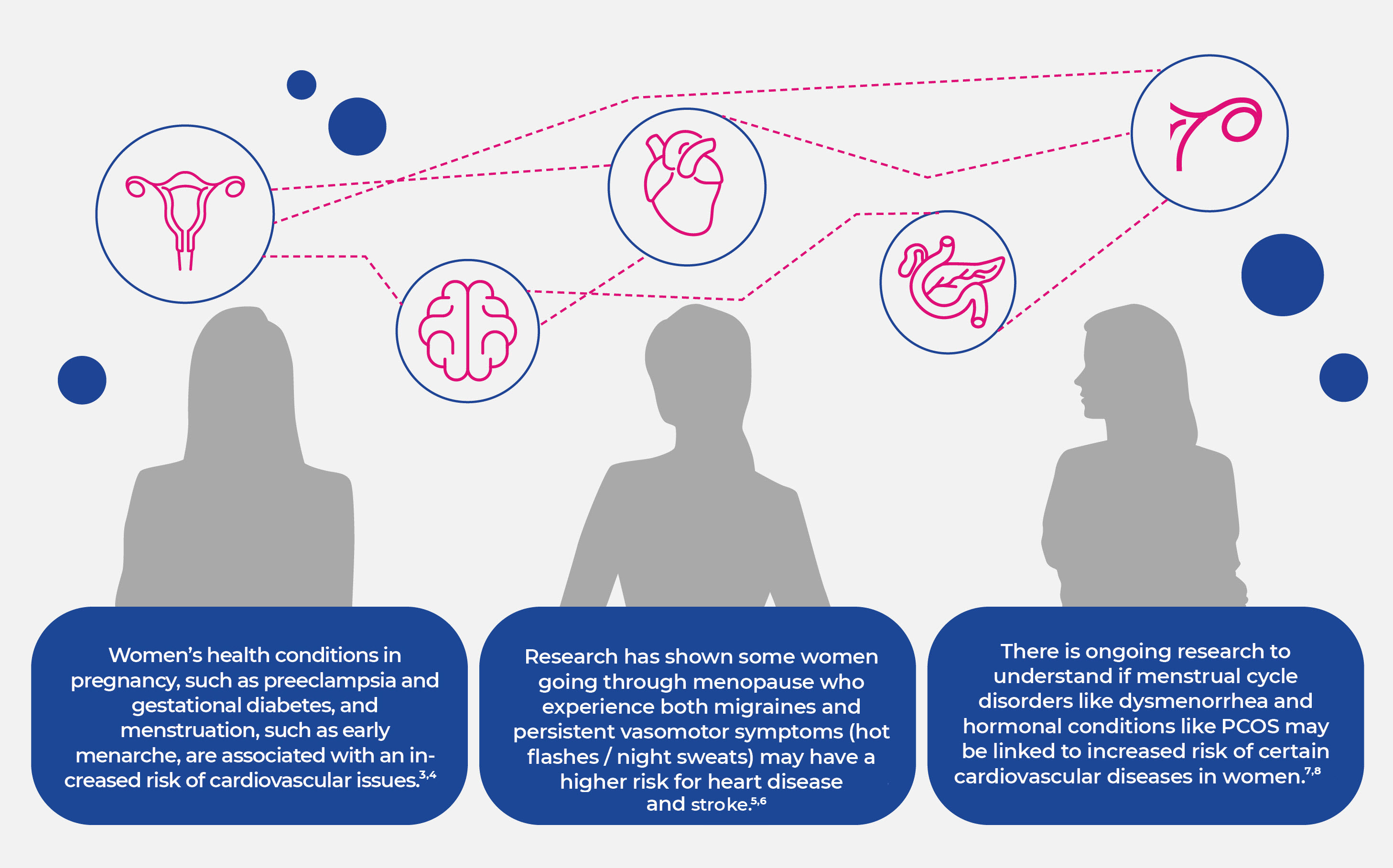What the Health?
Knowing Your Family Health History Can Help You Take Charge of Your Wellbeing
January 27, 2025

Made an appointment with a new doctor? Answering questions about your health and your family health history can be overwhelming when you may not know all the answers. To make the most of your appointment and have a personalized discussion tailored to your health needs and risk factors, going in prepared with this information can make a powerful difference.
To better understand family health history, having conversations with relatives is the first step. These conversations aren’t always easy, but they can also create a space to share memories about grandparents and great-grandparents, as you source information from further back. Try your best to separate facts from stigma and set up the conversation in a casual way. The more health information you can uncover, the better – especially knowing how many conditions and diseases can be connected to one another.
For instance, women’s health is more than reproductive health, and non-reproductive issues such as mental health, and autoimmune diseases disproportionately affect women.1 Heart disease is the leading cause of death in women in the US,2 and in some cases, there are clues from interconnected diseases and women’s health conditions that can amplify risk. Whether you are meeting with a primary care doctor or OBGYN, knowing and sharing more information can help set you up for a healthier every day.

Different factors can impact the health of women at each stage of her life’s journey. 80 to 90 percent of a person’s health can be determined by physical environment, health-related behaviors, and socioeconomic factors, such as where they live.9 People from certain ethnic backgrounds can also be at higher risk for different conditions and diseases—for instance, those with South and Middle-East Asian roots have a higher risk of cardiovascular disease and diabetes, and people of African origin have a higher prevalence of hypertension and stroke.10 Knowing this information is important, as there are still aspects of a woman’s health in which knowing her risk factors, in partnership with her healthcare provider, can empower her to take control of her health.
Collecting family health history and discussing it with one’s healthcare provider can help you get the tools you need to live a better and healthier every day. Your healthcare provider can use your family health history to develop a more complete picture of your health and your risk factors for disease. Together you can work on ways to reduce that risk.11
Knowledge is Power: Thought Starters to Spark Health Conversations with Family
To learn more about family health history, find time to talk to family members and ask questions. Often, family gatherings or holidays can be a good time to do this as relatives across generations will be together. Below are some ways you can get the conversation started:

As you gather information, you may be surprised by what you learn about your relatives—and that you may even have similar health experiences. Taking notes during or after these conversations when the information is fresh can be helpful for relaying key points to your healthcare provider. You can also record your family health history using a free online tool created by The Surgeon General, called My Family Health Portrait. You can download the template to input your information and print it out before your next doctor’s appointment.
Openly discussing family health history with your relatives is a powerful way to stay connected and take charge of your health. You may learn some signs and symptoms to look for and prevention methods you may not have previously thought of. The first step is starting the conversation. Then you can continue it with your health care team.
- Ellingrud et al. (2024, Jan 17). Closing the women’s health gap. Closing the women’s health gap | McKinsey
- Benjamin et al. Magnitude of the Prevention Problem: Opportunities and Challenges. Journal of the American College of Cardiology. 2022;40(4):588
- Myatt L. The prediction of preeclampsia: the way forward. Am J Obstet Gynecol. 2022;226(2 Suppl):S1102-S1107. doi:10.1016/j.ajog.2020.10.047
- Murray SR, Reynolds RM. Short‐ and long‐term outcomes of gestational diabetes and its treatment on fetal development. Prenat Diagn. 2020;40(9):1085-1091. doi:10.1002/pd.5768
- Kim C, Schreiner PJ, Yin Z, et al. Migraines, vasomotor symptoms, and cardiovascular disease in the Coronary Artery Risk Development in Young Adults study. Menopause. 2024;31(3):202-208. doi:10.1097/GME.0000000000002311
- Hot flashes plus migraines ups risk of heart disease and stroke after menopause. NHLBI, NIH. https://www.nhlbi.nih.gov/news/2024/hot-flashes-plus-migraines-ups-risk-heart-disease-and-stroke-after-menopause. Accessed June 20, 2024.
- Yeh CH, Muo CH, Sung FC, Yen PS. Risk of ischemic heart disease associated with primary dysmenorrhea: A population-based retrospective cohort study. J Pers Med. 2022;12(10):1610. doi:10.3390/jpm12101610.
- Program Planner. Abstractsonline.com. Accessed October 9, 2024. https://www.abstractsonline.com/pp8/?_ga=2.252499981.569559676.1693429947-1069604919.1693247687#!/10871/presentation/11296
- Social Determinants of Health 101 for Health Care: Five Plus Five. Nam.edu. Accessed June 11, 2024. https://nam.edu/social-determinants-of-health-101-for-health-care-five-plus-five/#:~:text=Medical%20care%20is%20estimated%20to,socioeconomic%20factors%2C%20and%20environmental%20factors
- Rabanal KS, Lindman AS, Selmer RM, Aamodt G. Ethnic differences in risk factors and total risk of cardiovascular disease based on the Norwegian CONOR study. Eur J Prev Cardiol. 2013;20(6):1013-1021. doi:10.1177/2047487312450539
- CDC. About Family Health History. About Family Health History | Family Health History | CDC